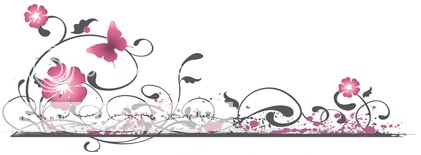|
|
|
|
|
|
|
|
|
 Posted: Tue Mar 19, 2013 2:10 pm Posted: Tue Mar 19, 2013 2:10 pm
|
|
|
|
|
|
|
|
|
|
 Posted: Tue Mar 19, 2013 2:13 pm Posted: Tue Mar 19, 2013 2:13 pm
|
|
|
|
|
|
|
|
|
|
|
|
|
 Posted: Tue Mar 19, 2013 2:14 pm Posted: Tue Mar 19, 2013 2:14 pm
|
|
|
|
|
|
|
|
|
|
 Posted: Tue Mar 19, 2013 2:15 pm Posted: Tue Mar 19, 2013 2:15 pm
|
|
|
|
|
|
|
|
|
|
|
|
|
 Posted: Tue Mar 19, 2013 2:16 pm Posted: Tue Mar 19, 2013 2:16 pm
|
|
|
|
|
|
|
|
|
|
 Posted: Tue Mar 19, 2013 2:17 pm Posted: Tue Mar 19, 2013 2:17 pm
|
|
|
|
|
|
|
|
|
|
|
|
|
 Posted: Tue Mar 19, 2013 2:20 pm Posted: Tue Mar 19, 2013 2:20 pm
|
|
|
|
|
|
|
|
|
|
 Posted: Tue Mar 19, 2013 2:22 pm Posted: Tue Mar 19, 2013 2:22 pm
|
|
|
|
|
|
|
|
|
|
|
|
|
 Posted: Tue Mar 19, 2013 2:24 pm Posted: Tue Mar 19, 2013 2:24 pm
|
|
|
|
|
|
|
|
|
|
 Posted: Tue Mar 19, 2013 2:25 pm Posted: Tue Mar 19, 2013 2:25 pm
|
|
|
|
|
|
|
|
|
|
|
|
|
 Posted: Tue Mar 19, 2013 2:26 pm Posted: Tue Mar 19, 2013 2:26 pm
 Bloody hell! It's really taking forever to buffer. Guess I'll just forget watching True Blood today and just wait another day to continue. Bloody hell! It's really taking forever to buffer. Guess I'll just forget watching True Blood today and just wait another day to continue.
So... now I'll just do random research stuff for my novel. I know I said I wouldn't before... but I need to do some, just so I get it out of my system.
|
 |
 |
|
|
|
|
|
|
|
|
|
|
|
|
 Posted: Tue Mar 19, 2013 2:28 pm Posted: Tue Mar 19, 2013 2:28 pm
  Well, I'm glad that I've incorporated some of the connected words of the elements into my storyline without even realizing that they were connected with said elements. At least I'm on the right track with that aspect. Well, I'm glad that I've incorporated some of the connected words of the elements into my storyline without even realizing that they were connected with said elements. At least I'm on the right track with that aspect.
|
 |
 |
|
|
|
|
|
|
|
|
|
|
|
|
|
|
|
 Posted: Tue Mar 19, 2013 2:34 pm Posted: Tue Mar 19, 2013 2:34 pm
Five Elements (Japanese)
One may encounter two kinds of five elements philosophy in Japan. One is called, in Japanese, gogyō 五行, having its backgrounds in the Chinese five elements, and the other is called godai 五大. Godai is usually regarded as a Buddhism term in Japan, with certain influences from Hinduism. [...] Chi地 (sometimes ji) or tsuchi, meaning “Earth”, represents the hard, solid objects of the world. [...] Emotionally, chi is predominantly associated with stubbornness, stability, physicality, and gravity. It is a desire to have things remain as they are; a resistance to change. In the mind, it is confidence. [...] Sui水 or mizu, meaning “Water”, represents the fluid, flowing, formless things in the world. [...]Sui can be associated with emotion, defensiveness, adaptability, flexibility, suppleness, and magnetism. [...] Ka火or hi, meaning “Fire”, represents the energetic, forceful, moving things in the world. [...] in the mental and emotional realms, it represents drive and passion. ka can be associated with motivation, desire, intention, and an outgoing spirit. [...] Fū風 or kaze, meaning “Wind”, represents things that grow, expand, and enjoy freedom of movement. Aside from air, smoke, and the like, fū can in some ways be best represented by the human mind. [...] Mentally and emotionally, it represents an “open-minded” attitude and carefree feeling. It can be associated with will, elusiveness, evasiveness, benevolence, compassion, and wisdom. Kū空 or sora, most often translated as “Void”, but also meaning “sky” or “Heaven”, represents those things beyond our everyday experience, particularly those things composed of pure energy. Bodily, kū represents spirit, thought, and creative energy. It represents our ability to think and to communicate, as well as our creativity. It can also be associated with power, creativity, spontaneity, and inventiveness. Kū is of particular importance as the highest of the elements. In martial arts, particularly in fictional tales where the fighting discipline is blended with magic or the occult, one often invokes the power of the Void to connect to the quintessential creative energy of the world. A warrior properly attuned to the Void can sense their surroundings and act without thinking, and without using their physical senses.
|
 |
 |
|
|
|
|
|
|
|
|
|
|
|
|
 Posted: Tue Mar 19, 2013 2:36 pm Posted: Tue Mar 19, 2013 2:36 pm
|
|
|
|
|
|
|
|
|
|
|
|
|
 Posted: Tue Mar 19, 2013 2:41 pm Posted: Tue Mar 19, 2013 2:41 pm
|
|
|
|
|
|
 |
|
|
|
|
|
|



